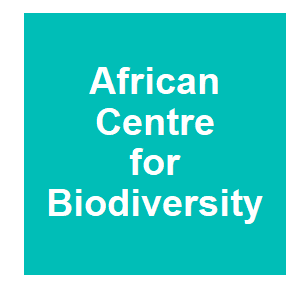
Keywords: Target malaria

|
“Mozzie Drive” Card Game rulesKatie Willis, Ace North, Target Malaria, 2024.
Mozzie Drive is an educational card game that demonstrates how gene drive technology could be used to reduce populations of malaria mosquitoes. To download the game for free, please visit: https://targetmalaria.org/why-malaria... . This game was designed by Dr. Katie Willis ... Keywords: Burkina Faso, gene drive synthetic, genetically modified mosquitoes, malaria, population suppression, Target malaria |

|
What are gene drives?Anonymous, MalariaGEN, 2023.
Among the new generation of technological tools being developed to combat malaria, there is a lot of buzz around gene drives. This is a method for genetically modifying malaria-spreading mosquitoes and ultimately reducing or replacing their populations. But how exactly do gene ... Keywords: Burkina Faso, gene drive synthetic, genetically modified mosquitoes, malaria, population suppression, Target malaria |

|
Gene Drives: Target Malaria is underestimating the risksC. Then, Testbiotech, 2023.
The Target Malaria consortium has for several years been planning to conduct field trials using genetically engineered mosquitoes in Burkina Faso. The aim is to transfer artificial gene constructs, i. e. the so-called ‘X-shredder’, into wild populations of the mosquitoes. ... Keywords: Burkina Faso, gene drive synthetic, genetically modified mosquitoes, malaria, population suppression, Target malaria |

|
Engagement on risk assessment for gene drive mosquitoes by EFSA and Target MalariaS. Hartley, A. Kokotovich, Y. Devos and J. Mumford, Environmental Science and Policy, 142:183-193. 2023.
As engineered gene drive technologies continue to advance, many actors are actively considering how environmental risk assessments (RAs) for gene drive organisms should be conducted, and how stakeholder engagement opportunities should be provided. There is, however, a lack of ... Keywords: Burkina Faso, gene drive synthetic, genetically modified mosquitoes, malaria, population suppression, Target malaria |

|
Ethical dilemma: Should we get rid of mosquitoes?Talya Hackett, TED-Ed, 2023.
Mosquitoes are responsible for more human deaths every year than any other animal, but very few of the 3,500 mosquito species actually transmit deadly diseases to humans. Scientists have been conducting experiments using engineered technologies called gene drives that could ... Keywords: Burkina Faso, gene drive synthetic, genetically modified mosquitoes, malaria, population suppression, Target malaria |

|
Genetically modified mosquitoes … could CRISPR gene editing end malaria?D. Wells, SelectScience, 2022.
Despite being a preventable and treatable disease, malaria is currently affecting the lives of more than 200 million people.1 This results in over half a million deaths per year, with 80% of this mortality occurring in children under the age of 5.2 In addition to the tragic ... Keywords: Burkina Faso, gene drive synthetic, genetically modified mosquitoes, malaria, population suppression, Target malaria |

|
East African policy dialogue on research of genetically modified mosquitoes for malaria control and eliminationC. Mugoya, Target Malaria, 2022.
The East African Community Secretariat, in collaboration with the East African Health Research Commission; NEPAD, AFIDEP and IFAKARA Health Institute recently convened an East African regional dialogue in Dar es salaam, Tanzania from 17-19 November 2022 to deliberate the way ... Keywords: Burkina Faso, gene drive synthetic, genetically modified mosquitoes, malaria, population suppression, Target malaria |

|
Should we use a genetic weapon against mosquitoes carrying malaria?T. H. Saey, ScienceNewsExplores, 2022.
In a large laboratory cage, a male mosquito carries a genetic weapon that could launch the destruction of his species. That loss could also mean the end of the parasite that causes malaria. The weapon? A self-replicating bit of DNA known as a gene drive. It’s one of the most ... Keywords: Burkina Faso, gene drive synthetic, genetically modified mosquitoes, malaria, population suppression, Target malaria |

|
What do we mean by “Target Organism” in Target Malaria’s gene drive research?J. B. Connolly, Target Malaria, 2022.
In the wild and in laboratory settings, sibling mosquito species can successfully mate to produce viable offspring, regardless of whether they are vectors or not. Importantly, females, but not males, of these offspring can be fertile. Nonetheless, the likelihood of finding such ... Keywords: Burkina Faso, gene drive synthetic, genetically modified mosquitoes, malaria, population suppression, Target malaria |

|
Gene drives and Africa’s battle against malariaAnnonymous, Africa Verified, 2022.
As malaria cases rise, and the effectiveness of current methods begins to fall, the WHO’s target of reducing the global malaria burden by 90% by 2030 will not be met. It is critical for new and resilient treatment, prevention, and control methods to be developed and integrated ... Keywords: Burkina Faso, gene drive synthetic, genetically modified mosquitoes, malaria, population suppression, Target malaria |

|
Who decides whether to use gene drives against malaria-carrying mosquitoes?T. H. Saey, ScienceNews, 2022.
The gene drive interferes with the insects’ ability to reproduce. It wiped out captive populations of mosquitoes in eight to 12 generations (SN: 10/27/18, p. 6) in a small lab study. In 2021, the technology worked in the large cages in Terni, Italy, too. Within as little as ... Keywords: Burkina Faso, gene drive synthetic, genetically modified mosquitoes, malaria, population suppression, Target malaria |

|
The sci-fi technology tackling malarial mosquitosAnonymous, The Star, 2022.
Environmental campaigner Liz O'Neill doesn't mince her words about gene drives - the next generation of genetic modification (GM) technology. "It is extremely worrying," says the director of UK anti-GM pressure group, GM Freeze. "To release something that has been specifically ... Keywords: Burkina Faso, gene drive synthetic, genetically modified mosquitoes, malaria, population suppression, Target malaria |

|
Importation of the non gene drive genetically modified male bias mosquito strain into Burkina FasoA. Diabate, Target Malaria, 2022.
On March 16 and 21, the team at the Institut de Recherche en Sciences de la Santé (IRSS), Target Malaria’s partner institution in Burkina Faso, received packages containing live genetically modified mosquito eggs from Italy. The National Biosafety Agency (ANB) officers were at ... Keywords: Burkina Faso, gene drive synthetic, genetically modified mosquitoes, malaria, population suppression, Target malaria |

|
The Financialisation of Malaria in Africa: Burkina Faso, rogue capital & GM/gene drive mosquitoesS. Mentz-Lagrange and S. Swanepoel, African Centre for Biodiversity, 2022.
This paper seeks to understand the financialisation of malaria as a vehicle for rogue capital in a context of a weakened state (through capture, corruption and coups) and the power that limits effective interventions. It shows how malaria, along with other diseases, is ... Keywords: Burkina Faso, gene drive synthetic, genetically modified mosquitoes, malaria, population suppression, Target malaria |

|
A multi-disciplinary approach for a building common understanding of genetic engineering for malaria control in Burkina FasoL. Pare Toe, N. Barry, A. D. Ky, S. Kekele, W. I. Meda, K. Bayala, et al., Humanities and Social Sciences Communications, 9. 2022.
Genetic engineering is a complex topic, even for scientists working in other areas, and even more so for those who lack a formal scientific training. To help gene specialists and affected communities talk with one another, international guidance documents have been published that ... Keywords: Burkina Faso, gene drive synthetic, genetically modified mosquitoes, malaria, population suppression, Target malaria |

|
Mark-release-recapture experiment in Burkina Faso demonstrates reduced fitness and dispersal of genetically-modified sterile malaria mosquitoesF. A. Yao, A.-A. Millogo, P. S. Epopa, A. North, F. Noulin, K. Dao, M. Drabo, C. Guissou, S. Kekele, M. Namountougou, R. K. Ouedraogo, L. Pare, N. Barry, R. Sanou, H. Wandaogo, R. K. Dabire, A. McKemey, F. Tripet and A. Diabaté, Nature Communications, 13:796. 2022.
Every year, malaria kills approximately 405,000 people in Sub-Saharan Africa, most of them children under the age of five years. In many countries, progress in malaria control has been threatened by the rapid spread of resistance to antimalarial drugs and insecticides. Novel ... Keywords: Burkina Faso, gene drive synthetic, genetically modified mosquitoes, malaria, population suppression, Target malaria |

|
Articulating ethical principles guiding Target Malaria’s engagement strategyA. J. Roberts and D. Thizy, Malaria Journal, 21:35. 2022.
Progress in gene drive research has engendered a lively discussion about community engagement and the ethical standards the work hinges on. While there is broad agreement regarding ethical principles and established best practices for conducting clinical public health research, ... Keywords: Burkina Faso, gene drive synthetic, genetically modified mosquitoes, malaria, population suppression, Target malaria |

|
Gene Drives For Malaria Control And EliminationAnnonymous, Health Tech, 2021.
There is notable ongoing research and prioritization of gene drive technology in Africa for Malaria control and elimination. Currently, there is ongoing gene drive mosquito research in Burkina Faso, Ghana, Mali and Uganda led by the Target Malaria consortium. While laboratory ... Keywords: Burkina Faso, gene drive synthetic, genetically modified mosquitoes, malaria, population suppression, Target malaria |

|
Two years of laboratory studies on the non gene drive genetically modified sterile male mosquitoes concluded successfully in MaliM. Coulibaly, Target Malaria, 2021.
The Target Malaria Mali team at the Malaria Research and Training Centre (MRTC) based at the University of Sciences, Techniques and Technologies of Bamako (USTTB) is proud to have been the first Malian research team to work on non gene drive genetically modified sterile male ... Keywords: Burkina Faso, gene drive synthetic, genetically modified mosquitoes, malaria, population suppression, Target malaria |

|
Small-scale release of non-gene drive mosquitoes in Burkina Faso: from engagement implementation to assessment, a learning journeyL. Pare Toe, N. Barry, A. D. Ky, S. Kekele, W. Meda, K. Bayala, M. Drabo, D. Thizy and A. Diabate, Malaria Journal, 20:395. 2021.
This study provides a review of engagement activities relevant to field trials on non-gene drive genetically-modified mosquitoes as well as an assessment framework-using both qualitative and quantitative studies as well as an audit procedure. The latter was implemented to ... Keywords: Burkina Faso, gene drive synthetic, genetically modified mosquitoes, malaria, population suppression, Target malaria |

|
Gene drive revolution: How genetically tweaked mosquitoes could tip the balance in the battle to contain malariaF. Okumu, Genetic Literacy Project, 2021.
In 2016, a World Health Organisation (WHO) panel concluded that even with the best use of current approaches, there would still be 11 million malaria cases in 2050. What’s needed are longer-term integrated strategies to complement current methods. These may include large-scale ... Keywords: Burkina Faso, gene drive synthetic, genetically modified mosquitoes, malaria, population suppression, Target malaria |

|
Mobilizing Mutant Mosquitoes to Fight MalariaD. Mclaughlin and J. Recht, United Nations Foundation, 2021.
World Mosquito Day today marks the 1897 discovery by Sir Ronald Ross that female Anopheles mosquitoes spread malaria. Since that breakthrough, the world has fought this deadly disease through scientific research and new technology. While astounding progress has been made against ... Keywords: Burkina Faso, gene drive synthetic, genetically modified mosquitoes, malaria, population suppression, Target malaria |

|
Scientists eradicate malaria-transmitting mosquitos using genetic engineering which make females infertile in new study which takes one step closer to wiping out the disease worldwide.C. Ciaccia, Daily Mail, 2021.
Malaria kills nearly 500,000 people globally every year, but scientists have now figured out a way to use CRISPR gene-editing technology to make female mosquitoes infertile, described as a 'game-changer' for ending the deadly disease. Researchers from Imperial College London, ... Keywords: Burkina Faso, gene drive synthetic, genetically modified mosquitoes, malaria, population suppression, Target malaria |

|
GM mosquitoes to fight malariaI. Khisa, The INDEPENDENT, 2021.
Scientists at the Uganda Virus Research Institute (UVRI) plans to undertake a research on genetically engineered mosquitoes to tackle malaria. Dr. Jonathan Kayondo, the principal investigator Target Malaria Uganda and Senior Research Officer at UVRI had an email interview with ... Keywords: Burkina Faso, gene drive synthetic, genetically modified mosquitoes, malaria, population suppression, Target malaria |

|
Gene Drives – Engineering the WildL. Sharratt, Sentinel, 2021.
So far, genetically engineered organisms have been mostly limited to agricultural use, with partial success. Around the world, a few major crops (mostly corn, soy, and cotton) are genetically engineered, predominantly for herbicide tolerance and insect resistance. However, the ... Keywords: Burkina Faso, gene drive synthetic, genetically modified mosquitoes, malaria, population suppression, Target malaria |

|
West African countries working together to develop framework to regulate genetically engineered mosquitos: Target MalariaAnonymous, Global News, 2021.
Abdoulaye Diabaté, principal investigator for Target Malaria, says West African countries like Burkina Faso, Mali and Benin are working with the New Partnership for Africa’s Development (NEPAD) to develop a pan-West African framework to regulate gene drive mosquitos. Keywords: Burkina Faso, gene drive synthetic, genetically modified mosquitoes, malaria, population suppression, Target malaria |

|
The ethical scientist in a time of uncertaintyL. Zoloth, Cell, 184:1430-1439. 2021.
Using the example of gene drives for malaria control to explore the problem of deep uncertainty in biomedical research, I argue that profound uncertainty is an essential feature. Applying the language and presumptions of the discipline of philosophical ethics, I describe three ... Keywords: Burkina Faso, gene drive synthetic, genetically modified mosquitoes, malaria, population suppression, Target malaria |

|
In Uganda, genetically modified mosquitoes bring hope and fearAnonymous, africanews, 2021.
Scientists here are investigating whether populations of the malaria-carrying insects can be reduced by genetic modification. They're looking at the viability of releasing large numbers of genetically modified mosquitos into the wild to influence future generations. The study ... Keywords: Burkina Faso, gene drive synthetic, genetically modified mosquitoes, malaria, population suppression, Target malaria |

|
Experts oppose plan to breed mosquitoesT. Abet, Daily Monitor, 2021.
Environmentalists have opposed the plan to breed and release genetically modified mosquitoes in the country to curb malaria prevalence. They say the act presents substantial human and environmental health risks. Their objection follows last week’s announcement by scientists ... Keywords: Burkina Faso, gene drive synthetic, genetically modified mosquitoes, malaria, population suppression, Target malaria |

|
Genetically modified mosquitoes to curb malariaT. Abet, Daily Monitor, 2021.
Scientists at Uganda Virus Research Institute (UVRI) have started breeding mosquitoes with the aim of modifying their genetic materials and releasing them to the environment to curb malaria transmission. The genetically modified mosquitoes, according to the scientists, do not ... Keywords: Burkina Faso, gene drive synthetic, genetically modified mosquitoes, malaria, population suppression, Target malaria |

|
New genetically modified mosquitoes to help fight malariaD. Zirimala, Capital Radio FM, 2021.
According to Dr. Jonathan Kayondo, the principal investigator of the Target Malaria project, the genetically modified mosquitoes do not transmit malaria parasites when they bite. These are made infertile so that when they cross breed with the female anopheles mosquito, they are ... Keywords: Burkina Faso, gene drive synthetic, genetically modified mosquitoes, malaria, population suppression, Target malaria |

|
Proceedings of an expert workshop on community agreement for gene drive research in Africa – Co-organised by KEMRI, PAMCA and Target Malaria [version 1; peer review: awaiting peer review]D. Thizy, L. Pare Toe, C. Mbogo, D. Matoke-Muhia, V. P. Alibu, S. K. Barnhill-Dilling, T. Chantler, G. Chongwe, J. Delborne, L. Kapiriri, E. Nassonko Kavuma, S. Koloi-Keaikitse, A. Kormos, K. Littler, D. Lwetoijera, R. Vargas de Moraes, N. Mumba, L. Muten, Gates Open Research, 2021.
Target Malaria, the Kenya Medical Research Institute and the Pan African Mosquito Control Association co-organised a workshop with researchers and practitioners on this topic to question the model proposed by Target Malaria in its research so far that involved the release of ... Keywords: Burkina Faso, gene drive synthetic, genetically modified mosquitoes, malaria, population suppression, Target malaria |

|
Co‐developing a common glossary with stakeholders for engagement on new genetic approaches for malaria control in a local African settingE. Chemonges Wanyama, B. Dicko, L. Pare Toe, M. B. Coulibaly, N. Barry, K. Bayala Traore, A. Diabate, M. Drabo, J. K. Kayondo, S. Kekele, S. Kodio, A. D. Ky, R. R. Linga, E. Magala, W. I. Meda, S. Mukwaya, A. Namukwaya, B. Robinson, H. Samoura, K. Sanogo, Malaria Journal, 20:53. 2021.
Scientific terminologies are mainly lacking in local languages, yet when research activities involve international partnership, the question of technical jargon and its translation is crucial for effective and meaningful communication with stakeholders. Target Malaria, a ... Keywords: Burkina Faso, gene drive synthetic, genetically modified mosquitoes, malaria, population suppression, Target malaria |

|
The promise of CRISPR and gene drive systems to end malaria in AfricaE. Gomez-Diaz, ARRIGE ORG, 2020.
Presentation by Elena Gómez Díaz (IPBLN-CSIC, Granada, Spain) at the ARRIGE 2020 meeting on "The promise of CRISPR and gene drive systems to end malaria in Africa". Discussion is included at the end of the Ruud de Maagd presentation.https://youtu.be/te3MJ8EZoes Keywords: Burkina Faso, gene drive synthetic, genetically modified mosquitoes, malaria, population suppression, Target malaria |

|
Brave New Planet: Reshaping Nature Through Gene DrivesE. Lander, Brave New Planet, 2020.
A new technology, called gene drives, has the power to spread any genetic instructions you wish across an entire animal or plant species in the wild. It might let us restore ecosystems ravaged by invasive species, or help species adapt to climate change. And, it might save ... Keywords: Burkina Faso, gene drive synthetic, genetically modified mosquitoes, malaria, population suppression, Target malaria |

|
Interview with Professor Austin Burt: Role of gene drive technology in the context of the EU’s Biodiversity Strategy 2030S. Dunphy, European Scientist, 2020.
In view of these conditions, leading scientists are calling on EU institutions to continue to back research into gene drive as a potential tool to protect public health and deliver on Europe’s biodiversity goals. Experts believe gene drive technologies could be a vital and ... Keywords: Burkina Faso, gene drive synthetic, genetically modified mosquitoes, malaria, population suppression, Target malaria |

|
Driven to ExterminateZ. Moloo and J. Thomas, etc group, 2020.
Gates’s ‘let’s deploy it’ response may not seem out of character, but it was an unusually gung ho response given how risky the technology is widely acknowledged to be. Keywords: Burkina Faso, gene drive synthetic, genetically modified mosquitoes, malaria, population suppression, Target malaria |

|
Fighting malaria with genetically modified mosquitoesE. Nakkazi, BMJ, 370:m2172. 2020.
Could a bold project to genetically engineer mosquitoes curb the scourge of malaria in Africa? Finding out will require careful science—and public acceptance, writes Esther Nakkazi Keywords: Burkina Faso, gene drive synthetic, genetically modified mosquitoes, malaria, population suppression, Target malaria |

|
3 innovative technologies stopping malariaB. Muni, The Borgen Project, 2020.
Malaria has plummeted by 40% fifteen years after 2000. A report that NCBI published attributed this to mosquito preventative measures like bed netting and insecticides. These interventions and practices, like wearing light color clothing, help at-risk populations fight malaria. ... Keywords: Burkina Faso, gene drive synthetic, genetically modified mosquitoes, malaria, population suppression, Target malaria |

|
Fighting malaria with gene-drive technologyEarthWise, earthwise radio, 2020.
A team led by Imperial College London has created a genetic modification that distorts the sex ratio of a population of Anopheles gambiae mosquitoes using “gene drive” technology. The modification works by using a DNA-cutting enzyme to destroy the X chromosome during the ... Keywords: Burkina Faso, gene drive synthetic, genetically modified mosquitoes, malaria, population suppression, Target malaria |

|
The development of complex and controversial innovations. Genetically modified mosquitoes for malaria eradicationV. Cisnetto and J. Barlow, Research Policy, 49:103917. 2020.
e use a longitudinal process approach and qualitative system dynamics modelling to study the development of genetically modified (GM) mosquitoes for malaria eradication in an African country. Keywords: Burkina Faso, gene drive synthetic, genetically modified mosquitoes, malaria, population suppression, Target malaria |

|
‘We don’t want to be guinea pigs’: how one African community is fighting genetically modified mosquitoesA. Pujol-Mazzini, The Telegraph, 2019.
Researchers from the Target Malaria consortium, a not-for-profit research group funded by the Bill & Melinda Gates Foundation and various research institutions, have developed a mosquito in their laboratory that can kill off its own species by spreading a faulty gene. If it ... Keywords: Burkina Faso, gene drive synthetic, genetically modified mosquitoes, malaria, population suppression, Target malaria |

|
Scientists release sterile mosquitoes in Burkina to fight malariaT. Ndiaga, Reuters, 2019.
Scientists in Burkina Faso have deployed a new weapon in the fight against malaria, and waded into a thorny bioethics debate, by letting loose thousands of genetically sterilized mosquitoes.Their experiment is the first outside the lab to release genetically altered mosquitoes in ... Keywords: Burkina Faso, gene drive synthetic, genetically modified mosquitoes, malaria, population suppression, Target malaria |

|
Gene Drives in Africa: Civil Society Speaks OutAfrican Centre for Biodiversity, African Centre for Biodiversity, 2019.
On Monday 1st July 2019, Target Malaria announced the release of genetically modified (GM) sterile male mosquitoes in Bana, a village in Burkina Faso – the first GM insect to be released in Africa. This is Phase I – by Phase III, Target Malaria aims to release gene drive ... Keywords: Burkina Faso, gene drive synthetic, genetically modified mosquitoes, malaria, population suppression, Target malaria |

|
For the first time, researchers will release genetically engineered mosquitoes in AfricaIke Swetitz, STAT, 2018.
The government of Burkina Faso granted scientists permission to release genetically engineered mosquitoes anytime this year or next, researchers announced Wednesday. It’s a key step in the broader efforts to use bioengineering to eliminate malaria in the region. Keywords: Burkina Faso, gene drive synthetic, genetically modified mosquitoes, malaria, population suppression, Target malaria |

|
A Revolutionary Genetic Experiment is Planned for a West African Village – If Residents AgreeIke Swetitz, STAT, 2017.
This small village of mud-brick homes in West Africa might seem the least likely place for an experiment at the frontier of biology. Yet scientists here are engaged in what could be the most promising, and perhaps one of the most frightening, biological experiments of our ... Keywords: Burkina Faso, gene drive synthetic, genetically modified mosquitoes, malaria, population suppression, Target malaria |

Contact
David O’Brochta
Foundation for the
National Institutes of Health
geneconvenevi@fnih.org
RSS

